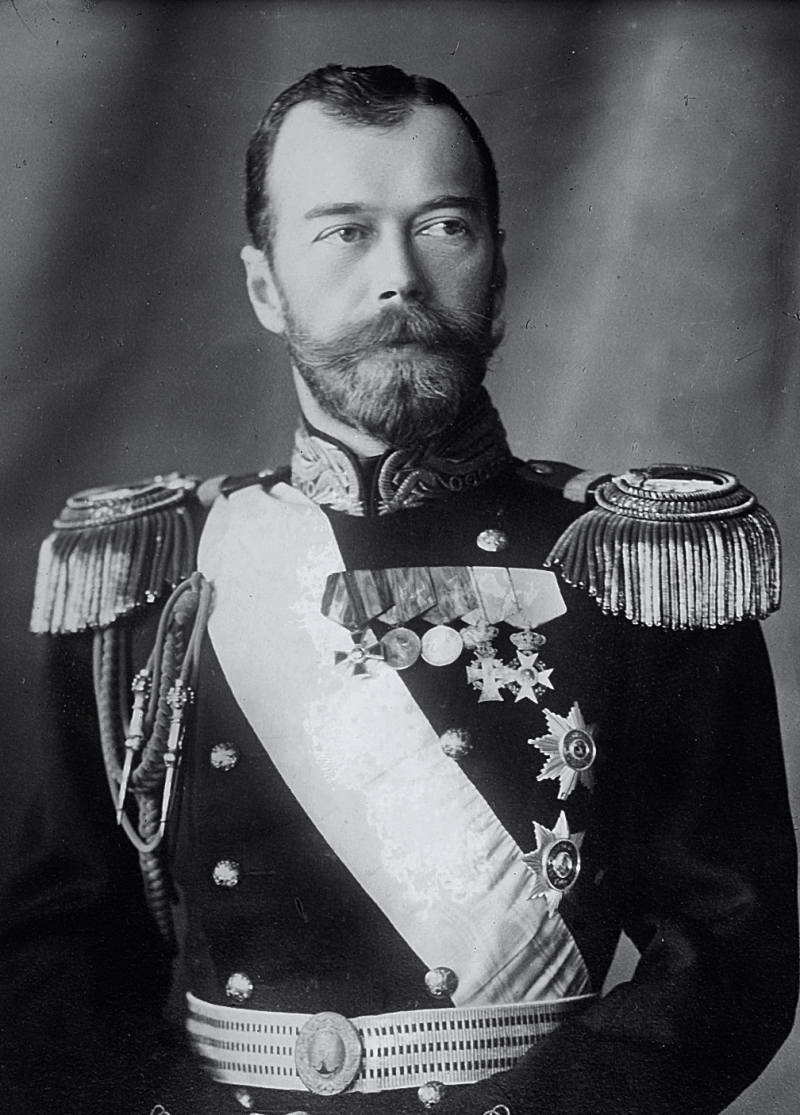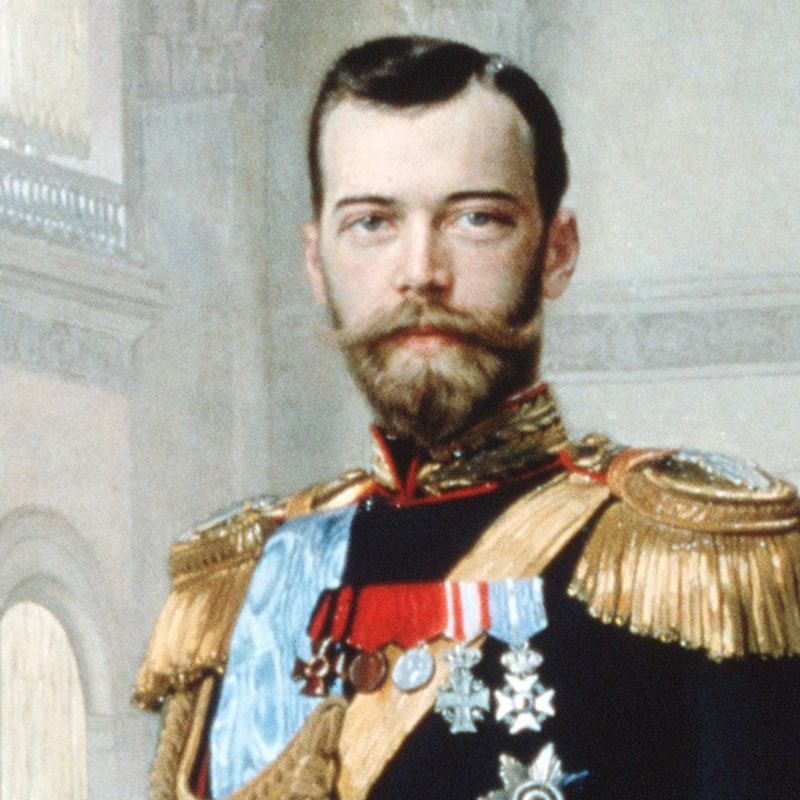Nicholas II of Russia
Nicholas II, also known as Nikolai II Alexandrovich Romanov, (18 May [O.S. 6 May] 1868 - 17 July 1918), was the last Emperor of Russia, King of Congress Poland, and Grand Duke of Finland, ruling from 1 November 1894 until his abdication on 15 March 1917. Nicholas supported the economic and political reforms advocated by his prime ministers, Sergei Witte and Pyotr Stolypin, during his reign. He advocated for modernization through foreign loans and close ties with France, but he opposed giving the new parliament (the Duma) significant powers. Finally, Nicholas' commitment to autocratic rule hampered progress, strong aristocratic opposition and Russian military defeats in the Russo-Japanese War and World War I. By March 1917, public support for Nicholas had dwindled, and he was forced to abdicate the throne, bringing the Romanov dynasty's 304-year reign in Russia to an end (1613-1917).
The Anglo-Russian Convention of 1907 was signed by Nicholas to counter Germany's attempts to gain influence in the Middle East; it marked the end of the Great Game of confrontation between Russia and the British Empire. He aimed to fortify the Franco-Russian Alliance and proposed the unsuccessful Hague Convention of 1899 to promote disarmament and peaceful resolution of international disputes. Domestically, he was chastised for his government's repression of political opponents, as well as his perceived failure or inaction during the Khodynka Tragedy, anti-Jewish pogroms, Bloody Sunday, and the violent suppression of the Russian Revolution of 1905. His popularity was harmed further by the Russo-Japanese War, which resulted in the annihilation of the Russian Baltic Fleet at the Battle of Tsushima, as well as the loss of Russian influence over Manchuria and Korea, and the Japanese annexation of the south of Sakhalin Island.
During the July Crisis, Nicholas backed Serbia and authorized the mobilization of the Russian Army on July 30, 1914. In response, Germany declared war on Russia on August 1, 1914, and its ally France declared war on August 3, 1914, launching the Great War, later known as the First World War. The severe military losses caused a collapse in morale both at the front and at home; a general strike and mutiny in the Petrograd garrison sparked the February Revolution and the disintegration of the monarchy's authority. After abdicating for himself and his son, Nicholas and his family were imprisoned and exiled to Siberia by the Russian Provisional Government. After the Bolsheviks took power in the October Revolution, the family was imprisoned in Yekaterinburg and executed on July 17, 1918.
The Russian Orthodox Church Outside Russia, based in New York City, declared Nicholas, his wife, and their children martyrs in 1981. Their grave was discovered in 1979, but it wasn't recognized until 1989. Following the fall of the Soviet Union, the imperial family's remains were exhumed, identified by DNA analysis, and re-interred in St. Petersburg on 17 July 1998, exactly 80 years after their deaths. The Russian Orthodox Church canonized them as passion bearers in 2000. In the years since his death, Soviet historians and state propaganda have vilified Nicholas as a "callous tyrant" who "persecuted his own people while sending countless soldiers to their deaths in pointless conflicts." Despite being viewed more positively in recent years, historians generally agree that Nicholas was a well-intentioned but inept ruler who proved incapable of dealing with the challenges confronting his country.












